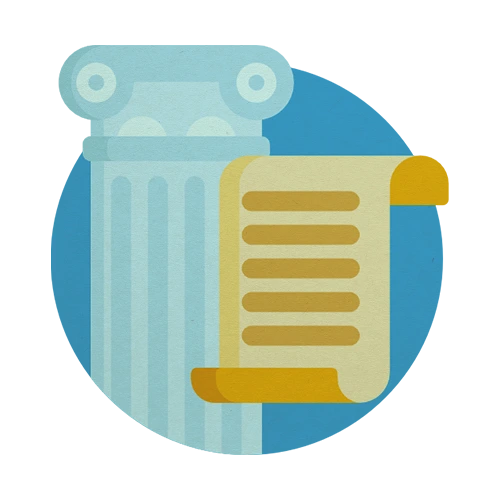People's use of passwords as a means of protecting information dates back to antiquity, they used secret words and phrases for identification. In Babylon and the Roman Empire, code words were relied upon to access fortifications. With the advent of computers in the 1960s(s), passwords became established as a key element in information security.
Initially they were simple text strings, but as hacking techniques developed, the need for more complex and difficult-to-crack passwords grew significantly. This led to the use of encryption, hashing and multi-factor authentication.
The first documented use of passwords has its origins in the revolutionary time-sharing system (CTSS) developed at the Massachusetts Institute of Technology (MIT) under the leadership of Fernando J. Corbató. CTSS was a pioneering computer system that enabled multiple users to work simultaneously on the same computer, a concept that laid the foundation for modern multi-user systems. To ensure the protection of each user's personal data and files, the system introduces a password authentication mechanism.
This solution is revolutionary for its time because it places an emphasis on security in an environment where access to information is no longer limited to one person, but anyone with a password.
He himself has a small quote about passwords:
"Using passwords has become a nightmare. I don't think anyone can remember all the passwords that are needed these days."
Since then, passwords have become the primary method of authentication and data protection in computer systems, phones, and other devices, although new and more secure methods of protection have emerged over time, such as two-factor authentication, biometrics, and cryptographic.
However, secure passwords have weaknesses and that comes from human intervention and for that there are generators like ours that help a person generate a good password.


Passwords in the Roman Empire played an important role in providing security, especially in the context of military operations and politically. They were used as a means of identification and coordination between soldiers, commanders and different units, also as plots to overthrow senates and important actions.
Here is how they were applied:
1. Passwords for military communication in Rome
In the Roman army, the term "tessera" was used to refer to a password or token of recognition. A tessera was a small tablet or object, often made of wood, metal or ceramic, on which a specific word or symbol was engraved. The password was distributed daily to military units and served to certify the soldiers' affiliation with the Roman army.
2. How the system worked
Password distribution: each day the unit commanders received the password from the superior officers. They then passed it on to their soldiers. This process was carried out in a strictly organized manner to avoid mistakes or leaks.
Identity verification: passwords were used for identification, especially during night operations or when soldiers returned to camp. Any soldier approaching the camp had to give the password to the guards to be admitted.
Daily change: the password was changed daily to reduce the risk of espionage or betrayal. If the enemy learned the password, it would jeopardize the security of the entire unit.
The Romans were aware of the danger of revealing the passwords. Therefore, they developed strict rules for their use. If a soldier lost his tessera or if it was suspected that the enemy had learned the password, commanders immediately changed it.
Passwords in the Roman Empire were not just a security tool and system, but also a symbol of military discipline and organization. Their effectiveness helped the Roman army become one of the most successful military forces in history.
Here are a few known incidents:
One of the biggest breaches in the history of passwords was the Yahoo case in 2013, in which 3 billion accounts were compromised. This event shows how important it is to have good password creation and management practices.
Or
Although the MySpace platform had already lost popularity, in 2016 it was discovered that hackers had compromised around 360 million user accounts with their passwords. This data was published on the internet even though the platform was no longer active for most users.
Or this
In 2020, Twitter fell victim to one of the largest social engineering attacks in history. Hackers managed to gain access to internal systems and compromised the accounts of celebrities and companies (including Elon Musk, Bill Gates and Apple). While no passwords were directly stolen, this incident highlighted weaknesses in social media security and the importance of multi-factor authentication.
Yes basically there is a lot wrong if your password is weak, if you use our password generator this won't be a problem and you can be an idea more secure.
"123456" is the most commonly used password in the world:
Despite security warnings, millions of people continue to use it, making it an easy target for hackers.
"password" is another commonly used password:
It's like people just give up and write the most obvious thing.
Roman soldiers used passwords:
They handed over a wooden tablet with a code word to verify their identity, but often lost them, leading to chaos.
Passwords on early computer systems were stored in text files:
No encryption - just a list of passwords available to everyone.
The first ARPANET password was compromised immediately:
Users "shared" their passwords to use the resources without waiting.
Keyboard sequences such as "qwerty" and "asdfgh" are extremely popular:
Although completely predictable, thousands of people continue to use them.
Users often add "!" at the end of the password:
Thinking that automatically makes it secure, but the hackers know it and try every possible character at the end.
Important passwords on sticky notes(Important passwords on sticky notes:):
One of the most common "hacks" is sticky notes with passwords left on the monitor or desk, which is a big and stupid mistake.
"iloveyou" is a commonly used password:
While it's cute, it's also on hackers' lists for a quick smash.
Many people use the same password for everything:
For example, the password for social networking, banking and email is the same, making life much easier for hackers.
